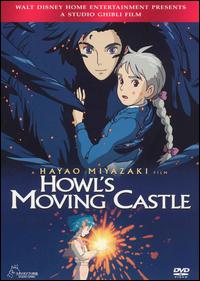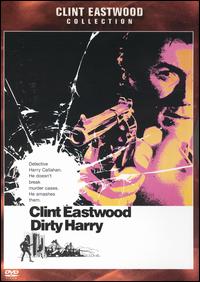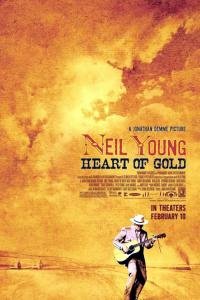Howl's Moving Castle
 It started with Princess Mononoke and burst open with Spirited Away. Hayao Miyazaki's star has risen and continues to shine with his latest feature, Howl's Moving Castle. There's long been a cultish quality about Japanese animation, and lately there's been a huge crossover in appeal to young adults in the United States and abroad, both on screen (anime) and in print magazines and books (manga). Many credit Miyazaki's success to his ties with Disney, but that isn't necessarily so - these films stand on their merits and garner more critical acclaim than most Disney features of late. In my opinion, they're leagues apart.
It started with Princess Mononoke and burst open with Spirited Away. Hayao Miyazaki's star has risen and continues to shine with his latest feature, Howl's Moving Castle. There's long been a cultish quality about Japanese animation, and lately there's been a huge crossover in appeal to young adults in the United States and abroad, both on screen (anime) and in print magazines and books (manga). Many credit Miyazaki's success to his ties with Disney, but that isn't necessarily so - these films stand on their merits and garner more critical acclaim than most Disney features of late. In my opinion, they're leagues apart.This film offers a fantastical look inside a distant world (decidedly Victorian in appearance), but with its own analogues to our current time. From within Howl's moving castle, the young wizard's magical door can open on several concurrent realms - each with their own ties to an evil presence threatening to upset the whole system. In the middle, a young girl is played a pawn and is thus drawn into Howl's world as he tries to reverse the curse cast upon her and save all that is good in the world at the same time.
Dramatic, scenic, endlessly entertaining. I highly recommend interested parties view the film in its original Japanese, with English subtitles. While the characters and settings don't benefit much from the language (as the culture represented is more European), the English dub is distracting (if downright annoying) and more tame (some of the innuendo is lost in translation to English spoken dialogue, but remains in the subtitles).
3 1/2 out of 5 stars




